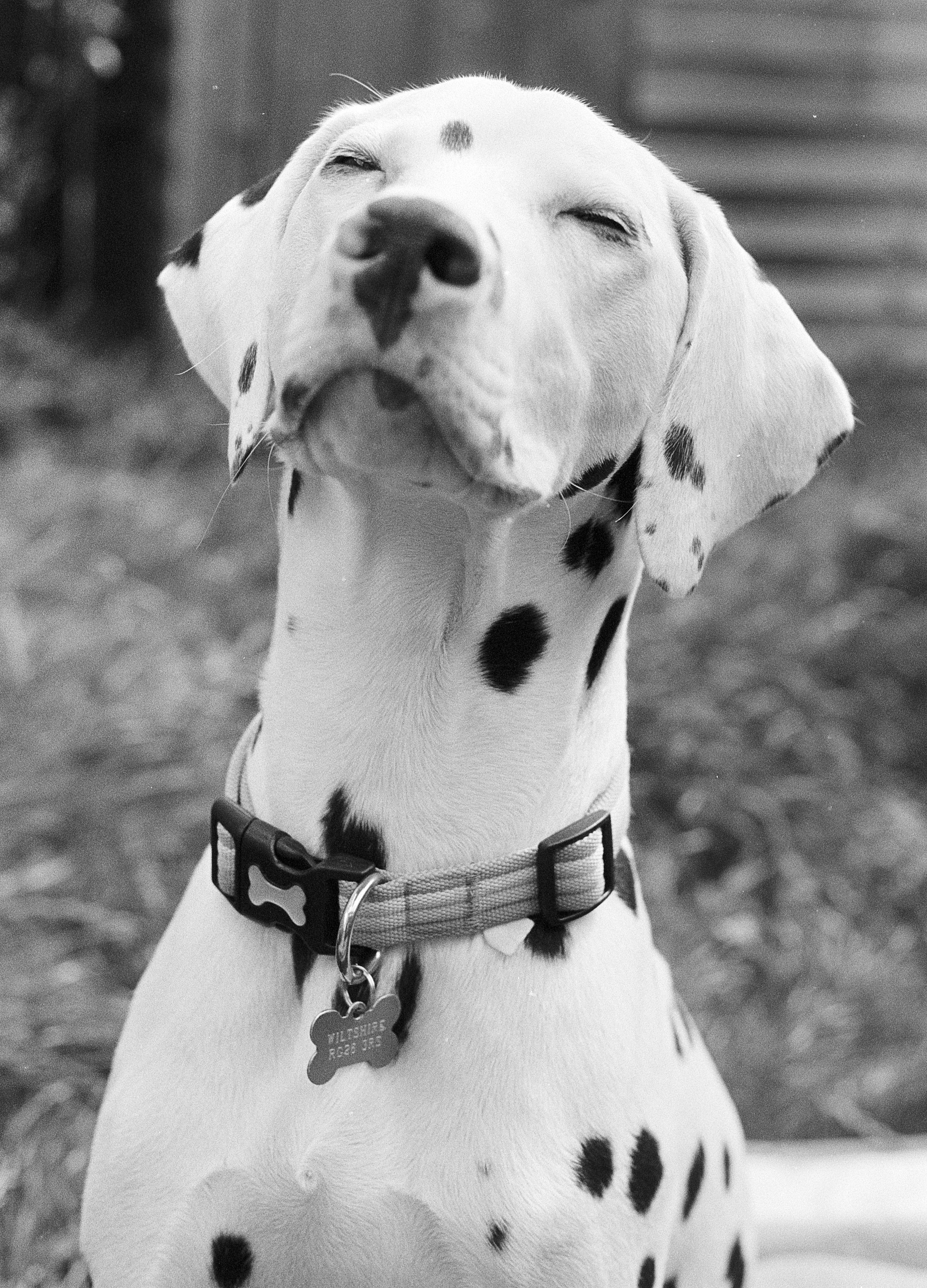Utah is home to a vibrant and thriving pet care industry, providing invaluable services and companionship to countless pet owners. However, with such a growing industry comes the need for regulations to ensure the well-being and safety of our beloved furry friends. If you are a pet care business owner or considering entering this industry in Utah, it is essential to familiarize yourself with the specific regulations that govern this field. Understanding these regulations will not only help you ensure compliance but also provide peace of mind to your clients, assuring them that their pets are in capable and nurturing hands. In this article, we will examine the regulations for pet care businesses in Utah, allowing you to navigate this industry with confidence and professionalism.
Licensing and Registration
Types of licenses
When starting a pet care business in Utah, it is important to understand the different types of licenses available. The primary license required is the Pet Care Facility License, which is issued by the Utah Department of Agriculture and Food. This license is necessary for any business that provides care, boarding, or grooming services for pets.
In addition to the Pet Care Facility License, there are other licenses that may be required depending on the specific services provided. For example, if you offer veterinary care or medical treatment for animals, you may need to obtain a Veterinary Facility License. It is important to research and understand all relevant licenses before starting your pet care business.
Application process
To obtain a Pet Care Facility License in Utah, you will need to complete an application and submit it to the Utah Department of Agriculture and Food. The application will require detailed information about your business, including the location, size, and services provided. You may also be required to provide proof of insurance and undergo an inspection of your facility.
It is important to note that the application process can take several weeks to complete, so it is recommended to start the process well in advance of your planned opening date. It is also important to ensure that your facility meets all the necessary requirements before submitting your application.
Renewal process
Once you have obtained a Pet Care Facility License, you will need to renew it annually. The renewal process involves submitting an updated application and paying the required fees. It is important to renew your license on time to avoid any disruptions in your business operations.
During the renewal process, your facility may be subject to inspection to ensure that it continues to meet all the necessary regulations and standards. If any issues are identified during the inspection, they will need to be addressed before your license can be renewed.
Zoning and Permitting
Zoning regulations
Before opening a pet care business in Utah, you must ensure that your facility is located in an area that is zoned for this type of business. Zoning regulations vary by city and county, so it is important to check the specific requirements for your location.
Zoning regulations typically govern the type of activities that can take place in certain areas. In the case of pet care businesses, zoning regulations may include restrictions on noise levels, odor control, and the number of animals that can be housed on the premises. It is important to comply with these regulations to avoid any potential legal issues.
Obtaining permits
In addition to zoning requirements, you may also need to obtain permits from the local government before opening your pet care business. These permits may include a business license, building permit, and signage permits.
The specific permits required will depend on the size and scope of your business. It is important to research and understand all the necessary permits before opening your facility. Failing to obtain the required permits can result in fines or other penalties.
It is recommended to consult with a business lawyer who is familiar with the zoning and permitting requirements in your area to ensure that you are in compliance with all applicable regulations.

Health and Safety Regulations
Vaccination requirements
Pet care businesses in Utah are required to ensure that all animals in their care are properly vaccinated. The specific vaccination requirements may vary depending on the type of animal and the services provided. However, commonly required vaccinations for dogs include rabies, distemper, and parvovirus, while cats may be required to have vaccinations for rabies and feline distemper.
Maintaining up-to-date vaccination records for all animals in your care is essential to ensure the health and safety of both the animals and your staff. It is important to establish protocols for verifying and documenting vaccinations when admitting new animals into your facility.
Pet health and inspection
Utah pet care businesses are required to prioritize the health and well-being of the animals in their care. This includes providing appropriate nutrition, sanitation, and medical care.
It is recommended to have a regular schedule for veterinary check-ups and to ensure that any animals showing signs of illness or distress receive prompt attention. Regular inspections of your facility should also be conducted to identify any potential health or safety hazards.
Safe handling of animals
Safe handling of animals is crucial to prevent accidents or injuries in a pet care facility. Staff should be trained on proper handling techniques to minimize stress and ensure the safety of both the animals and the staff.
It is important to provide adequate training and supervision to staff members to ensure that they understand and follow proper procedures. This may include training on how to approach and handle different species and sizes of animals, as well as how to recognize warning signs of aggression or fear.
Facility Requirements
Building codes
When establishing a pet care business in Utah, it is important to ensure that your facility meets all applicable building codes. Building codes are regulations that govern the construction, design, and maintenance of buildings to ensure the safety of occupants.
Your facility should be designed and constructed in accordance with the appropriate building codes for your area. This may include regulations related to fire safety, ventilation, plumbing, and electrical systems.
Structural standards
In addition to building codes, pet care facilities in Utah must also meet certain structural standards to ensure the safety and well-being of the animals in their care. This may include requirements for the construction of kennels, enclosures, and fencing.
It is important to regularly inspect your facility to identify any potential structural issues and address them promptly. This can help prevent accidents and ensure the comfort and security of the animals.
Sanitation regulations
Maintaining a clean and sanitary environment is critical in a pet care facility to prevent the spread of diseases and ensure the health and well-being of the animals. Utah has specific sanitation regulations that must be followed by pet care businesses.
These regulations may include requirements for cleaning and disinfecting equipment and facilities, proper waste disposal, and the use of safe and effective cleaning products. Regular cleaning and sanitation schedules should be established and followed diligently.
Staffing Regulations
Training and qualifications
The staff members of a pet care business play a vital role in providing quality care and ensuring the safety of the animals. It is important to hire qualified and trained individuals who have the necessary knowledge and skills to handle and care for animals.
Staff members should receive proper training on topics such as animal behavior, basic veterinary care, sanitation practices, and emergency procedures. Regular continuing education opportunities should also be provided to keep the staff updated on the latest industry standards and best practices.
Staff-to-animal ratio
Maintaining an appropriate staff-to-animal ratio is crucial to ensure that all animals receive adequate care and supervision. The specific ratio may vary depending on the size and type of animals being cared for, as well as the services provided.
It is important to assess the needs of your facility and establish staffing protocols that ensure the well-being of the animals. Adequate staffing levels can help prevent accidents, reduce stress, and ensure that each animal receives the attention and care it requires.
Recordkeeping and Reporting
Required documentation
Pet care businesses in Utah are required to maintain accurate and up-to-date records of the animals in their care. This includes information such as vaccination records, medical histories, feeding schedules, and any specific care instructions provided by the owners.
In addition to animal records, you may also be required to maintain records of staff training, inspections, and any incidents or injuries that occur on the premises. These records are important for monitoring compliance with regulations and providing a history of care for each animal.
Reporting incidents or injuries
In the event of an incident or injury involving an animal or staff member, it is important to report the incident as required by law. This may involve notifying the local authorities, the Utah Department of Agriculture and Food, and any relevant insurance providers.
Prompt reporting of incidents allows for a thorough investigation and appropriate action to be taken. It is important to maintain open lines of communication with the appropriate authorities and to cooperate fully in any investigations that may occur.

Insurance and Bonding
Liability insurance
Obtaining liability insurance is essential for any pet care business in Utah. This type of insurance protects the business owner in the event of injury or property damage that occurs on the premises or as a result of the services provided.
Liability insurance can provide coverage for medical expenses, legal fees, and damages resulting from lawsuits or claims. It is important to work with an insurance provider who understands the unique risks associated with the pet care industry and can provide appropriate coverage.
Bonding requirements
In addition to liability insurance, some pet care businesses in Utah may be required to obtain a bond. A bond is a type of financial guarantee that ensures the business will fulfill its obligations to its clients.
The specific bonding requirements vary depending on the type and size of the pet care business. It is important to consult with a business lawyer who can help you understand the bonding requirements and assist you in obtaining the necessary bond.
Advertising and Disclosure
Truth in advertising
When advertising your pet care business in Utah, it is important to ensure that all claims and statements are truthful and not misleading. You should accurately represent the services you provide, the qualifications of your staff, and any other information that may be relevant to potential clients.
Misleading advertising can result in legal consequences, damage to your reputation, and loss of trust from potential clients. It is recommended to review all advertising materials with a business lawyer to ensure compliance with applicable laws and regulations.
Disclosure of services and fees
Utah pet care businesses are required to provide clear and accurate information about their services and fees to potential clients. This includes disclosing any additional charges or fees that may apply, such as charges for additional services or medications.
It is important to provide this information in a written format that clients can easily access and understand. Transparency in disclosing services and fees helps to build trust with clients and ensures that they are fully informed before making a decision to use your services.

Compliance Inspections and Investigations
Routine inspections
Pet care businesses in Utah may be subject to routine inspections by the Utah Department of Agriculture and Food to ensure compliance with regulations. These inspections are typically carried out by trained inspectors who will assess the facility, records, and procedures to ensure that all requirements are being met.
It is important to maintain a high standard of compliance on an ongoing basis to minimize the risk of violations and penalties. Regular self-audits and inspections can help identify areas for improvement and ensure that your facility is always ready for any inspections.
Complaint investigations
In addition to routine inspections, pet care businesses in Utah may also be subject to complaint investigations. These investigations are initiated in response to a complaint or allegation of non-compliance with regulations.
Complaint investigations can be time-consuming and may require the cooperation of the business owner and staff. It is important to respond promptly to any complaints and fully cooperate in the investigation process. Working with a business lawyer during these investigations can help protect your rights and ensure a fair resolution.
Enforcement and Penalties
Consequences of non-compliance
Failure to comply with the regulations for pet care businesses in Utah can result in serious consequences. The specific penalties may vary depending on the nature and severity of the violation, but can include fines, license suspension or revocation, and legal action.
Non-compliance can also lead to damage to your reputation and loss of trust from clients. It is important to take all necessary steps to ensure compliance with regulations and to address any potential violations promptly.
Appeals process
If you disagree with a decision made by the Utah Department of Agriculture and Food, you have the right to appeal the decision. The appeals process allows you to present your case to an independent review board and may result in a reversal or modification of the original decision.
It is important to consult with a business lawyer who can guide you through the appeals process and help present your case effectively. The appeals process can be complex and time-consuming, so it is important to be prepared and knowledgeable about your rights and obligations.
FAQs
- What are the consequences of operating a pet care business without a license in Utah?
Operating a pet care business without a license in Utah can result in penalties and legal consequences. These may include fines, closure of the business, and difficulty obtaining a license in the future. It is important to obtain the necessary licenses and comply with all regulations to avoid these consequences.
- Are there specific insurance requirements for pet care businesses in Utah?
While there are no specific insurance requirements mandated by the state of Utah, it is highly recommended for pet care businesses to obtain liability insurance. This type of insurance protects the business owner in the event of injury or property damage and can be crucial in mitigating financial risks.
- What is the staff-to-animal ratio requirement for pet care businesses in Utah?
There is no specific staff-to-animal ratio requirement set by the state of Utah. However, it is important to establish staffing protocols that ensure the welfare and safety of the animals in your care. The appropriate staff-to-animal ratio will depend on factors such as the type and size of animals, as well as the services provided.
- How often are routine inspections conducted for pet care businesses in Utah?
Routine inspections for pet care businesses in Utah can vary in frequency and are typically conducted by the Utah Department of Agriculture and Food. The specific schedule for inspections may depend on factors such as the size and type of facility, compliance history, and the level of risk associated with the business operations.
- Can I appeal a decision made by the Utah Department of Agriculture and Food regarding my pet care business?
Yes, you have the right to appeal a decision made by the Utah Department of Agriculture and Food. The appeals process allows you to present your case to an independent review board and may result in a reversal or modification of the original decision. It is recommended to consult with a business lawyer who can guide you through the appeals process and help present your case effectively.